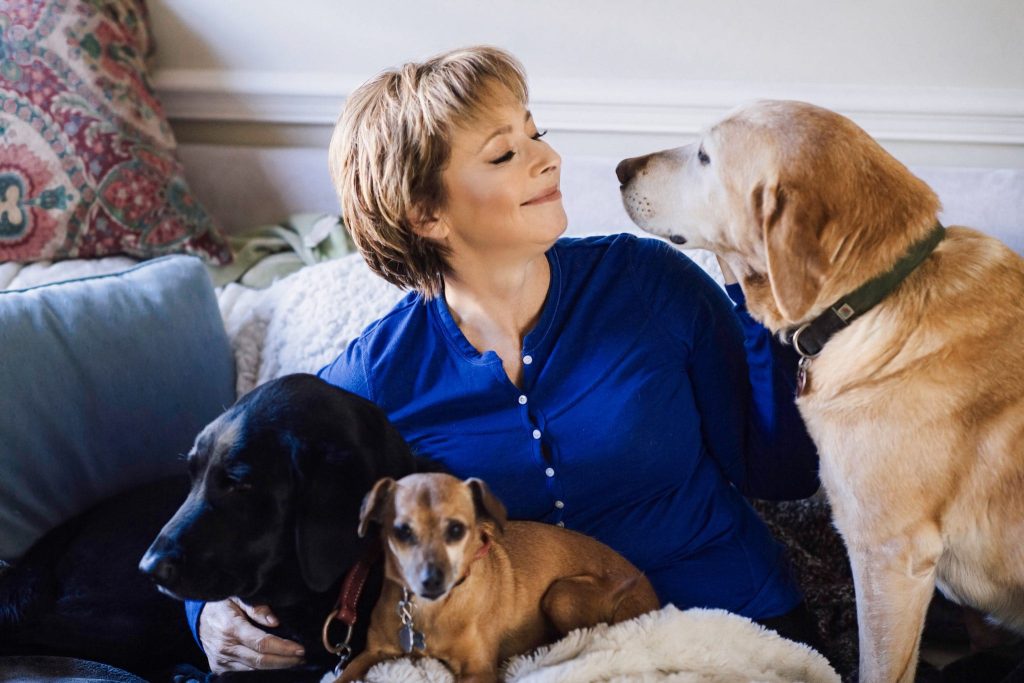Navigating the decision to euthanize a beloved pet is one of the most heart-wrenching choices pet owners face, as they balance the pet’s quality of life with their own emotional well-being. While veterinarians offer guidance and friends may provide opinions, the ultimate decision rests with the pet’s caretakers, often leaving them wondering, “Is it really time?”
Liz Murdoch, an Intuitive Animal Communicator and host of the podcast Talking with the Dogs!, deeply understands this struggle as she has shared in a recent episode, “Navigating Pet’s End of Life.” Drawing from her own experiences and consultations, Liz helps clients navigate end-of-life decisions for their pets. In a conversation with Dr. Judy Morgan of Naturally Healthy Pets, Dr. Morgan highlights the value of animal communicators like Liz in providing insights that can guide families through euthanasia decisions. Liz explains, “I help people reach their own understanding of what’s right for their situation by sharing the pet’s perspective, which can lead to clarity when faced with difficult decisions.”
With nearly thirty years of experience, Liz began her journey working with dogs in animal-assisted therapy. She grew her abilities evaluating rescue dogs for adoption and she wanted to help other people with their pets so she trained in animal communication. She has some suggested steps that can be helpful in making end-of-life decisions for pets.
1. Consider options for pet euthanasia. Contemplating euthanasia for a pet is an incredibly stressful decision, but there are often options for timing. Liz suggests asking veterinarians about alternative appointment times or other providers if scheduling is tight. “It’s important to keep a pet comfortable while exploring options for the family to say goodbye. Integrating both the pet’s and the family’s needs can bring some relief during this difficult time.”
2. Explore provider and location alternatives. Saying goodbye does not always have to happen at the vet’s office. Liz advises pet owners may want to consider home euthanasia, which can be a more comforting option for both the pet and the family. Liz shares, “Home euthanasia may seem expensive, but often the cost is not much more and eases the stress of transporting weakened pets to vet offices while allowing everyone to be in a familiar environment.” She encourages owners to explore what best suits the pet’s mobility and comfort.
3. Adapt plans as needed. As the moment approaches, family members can be involved as appropriate, with plans remaining flexible. Liz emphasizes the importance of gathering keepsakes, like a lock of fur or a paw print, and deciding on burial or cremation details in advance. She also reminds owners to focus on their pet’s needs and preferences, “What’s often keeping them alive is their bond with you, so give space for their perspective as you make decisions.”
Liz Murdoch is a highly sensitive and intuitive Animal Communicator, dedicated to transforming relationships between pets and their people. Her skills are deeply rooted in empathy, active listening, and multi-sensory perception. Her ability to connect with animals was enhanced by a near-death experience. This heightened her intuitive abilities, enabling her to understand animals’ emotions and physical condition by accessing a unique level of detail regarding what is really going on in the mind and the body of a cat or a dog.
Through Instagram and her website, Talking With the Dogs!, Liz offers pet families the opportunity to schedule sessions where she taps into what their pets are experiencing. Her goal is supporting the human-animal bond and providing clarity for owners facing difficult care decisions. She shares, “I love helping people understand what pets want at end-of-life. Receiving a pet’s perspective alleviates uncertainty, provides comfort and ultimately, eases any guilt that they didn’t do more.”
Liz’s work does not involve diagnosing illnesses but focuses on what animals share with her, including offering valuable insights as families navigate the emotional journey of end-of-life care for their pets.
Note: For medical emergencies, always seek medical advice immediately.
